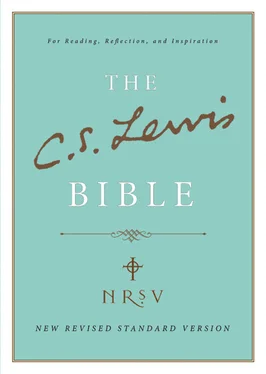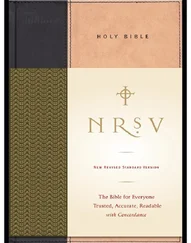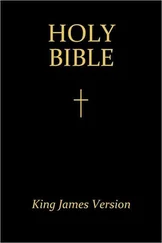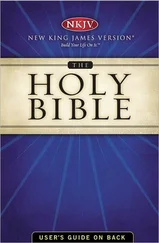16 Parents shall not be put to death for their children, nor shall children be put to death for their parents; only for their own crimes may persons be put to death.
17 You shall not deprive a resident alien or an orphan of justice; you shall not take a widow’s garment in pledge. 18Remember that you were a slave in Egypt and the LORD your God redeemed you from there; therefore I command you to do this.
19 When you reap your harvest in your field and forget a sheaf in the field, you shall not go back to get it; it shall be left for the alien, the orphan, and the widow, so that the LORD your God may bless you in all your undertakings. 20When you beat your olive trees, do not strip what is left; it shall be for the alien, the orphan, and the widow.
21 When you gather the grapes of your vineyard, do not glean what is left; it shall be for the alien, the orphan, and the widow. 22Remember that you were a slave in the land of Egypt; therefore I am commanding you to do this.
25 Suppose two persons have a dispute and enter into litigation, and the judges decide between them, declaring one to be in the right and the other to be in the wrong. 2If the one in the wrong deserves to be flogged, the judge shall make that person lie down and be beaten in his presence with the number of lashes proportionate to the offense. 3Forty lashes may be given but not more; if more lashes than these are given, your neighbor will be degraded in your sight.
4 You shall not muzzle an ox while it is treading out the grain.
5 When brothers reside together, and one of them dies and has no son, the wife of the deceased shall not be married outside the family to a stranger. Her husband’s brother shall go in to her, taking her in marriage, and performing the duty of a husband’s brother to her, 6and the firstborn whom she bears shall succeed to the name of the deceased brother, so that his name may not be blotted out of Israel. 7But if the man has no desire to marry his brother’s widow, then his brother’s widow shall go up to the elders at the gate and say, “My husband’s brother refuses to perpetuate his brother’s name in Israel; he will not perform the duty of a husband’s brother to me.” 8Then the elders of his town shall summon him and speak to him. If he persists, saying, “I have no desire to marry her,” 9then his brother’s wife shall go up to him in the presence of the elders, pull his sandal off his foot, spit in his face, and declare, “This is what is done to the man who does not build up his brother’s house.” 10Throughout Israel his family shall be known as “the house of him whose sandal was pulled off.”
11 If men get into a fight with one another, and the wife of one intervenes to rescue her husband from the grip of his opponent by reaching out and seizing his genitals, 12you shall cut off her hand; show no pity.
13 You shall not have in your bag two kinds of weights, large and small. 14You shall not have in your house two kinds of measures, large and small. 15You shall have only a full and honest weight; you shall have only a full and honest measure, so that your days may be long in the land that the LORD your God is giving you. 16For all who do such things, all who act dishonestly, are abhorrent to the LORD your God.
17 Remember what Amalek did to you on your journey out of Egypt, 18how he attacked you on the way, when you were faint and weary, and struck down all who lagged behind you; he did not fear God. 19Therefore when the LORD your God has given you rest from all your enemies on every hand, in the land that the LORD your God is giving you as an inheritance to possess, you shall blot out the remembrance of Amalek from under heaven; do not forget.
26 When you have come into the land that the LORD your God is giving you as an inheritance to possess, and you possess it, and settle in it, 2you shall take some of the first of all the fruit of the ground, which you harvest from the land that the LORD your God is giving you, and you shall put it in a basket and go to the place that the LORD your God will choose as a dwelling for his name. 3You shall go to the priest who is in office at that time, and say to him, “Today I declare to the LORD your God that I have come into the land that the LORD swore to our ancestors to give us.” 4When the priest takes the basket from your hand and sets it down before the altar of the LORD your God, 5you shall make this response before the LORD your God: “A wandering Aramean was my ancestor; he went down into Egypt and lived there as an alien, few in number, and there he became a great nation, mighty and populous. 6When the Egyptians treated us harshly and afflicted us, by imposing hard labor on us, 7we cried to the LORD, the God of our ancestors; the LORD heard our voice and saw our affliction, our toil, and our oppression. 8The LORD brought us out of Egypt with a mighty hand and an outstretched arm, with a terrifying display of power, and with signs and wonders; 9and he brought us into this place and gave us this land, a land flowing with milk and honey. 10So now I bring the first of the fruit of the ground that you, O LORD, have given me.” You shall set it down before the LORD your God and bow down before the LORD your God. 11Then you, together with the Levites and the aliens who reside among you, shall celebrate with all the bounty that the LORD your God has given to you and to your house.
12 When you have finished paying all the tithe of your produce in the third year (which is the year of the tithe), giving it to the Levites, the aliens, the orphans, and the widows, so that they may eat their fill within your towns, 13then you shall say before the LORD your God: “I have removed the sacred portion from the house, and I have given it to the Levites, the resident aliens, the orphans, and the widows, in accordance with your entire commandment that you commanded me; I have neither transgressed nor forgotten any of your commandments: 14I have not eaten of it while in mourning; I have not removed any of it while I was unclean; and I have not offered any of it to the dead. I have obeyed the LORD my God, doing just as you commanded me. 15Look down from your holy habitation, from heaven, and bless your people Israel and the ground that you have given us, as you swore to our ancestors—a land flowing with milk and honey.”
God created things which had free will. That means creatures which can go either wrong or right. Some people think they can imagine a creature which was free but had no possibility of going wrong; I cannot. If a thing is free to be good it is also free to be bad. And free will is what has made evil possible. Why, then, did God give them free will? Because free will, though it makes evil possible, is also the only thing that makes possible any love or goodness or joy worth having. A world of automata—of creatures that worked like machines—would hardly be worth creating. The happiness which God designs for His higher creatures is the happiness of being freely, voluntarily united to Him and to each other in an ecstasy of love and delight compared with which the most rapturous love between a man and a woman on this earth is mere milk and water. And for that they must be free.
Of course God knew what would happen if they used their freedom the wrong way: apparently He thought it worth the risk. Perhaps we feel inclined to disagree with Him. But there is a difficulty about disagreeing with God. He is the source from which all your reasoning power comes: you could not be right and He wrong any more than a stream can rise higher than its own source. When you are arguing against Him you are arguing against the very power that makes you able to argue at all: it is like cutting off the branch you are sitting on. If God thinks this state of war in the universe a price worth paying for free will—that is, for making a live world in which creatures can do real good or harm and something of real importance can happen, instead of a toy world which only moves when He pulls the strings—then we may take it it is worth paying.
Читать дальше












